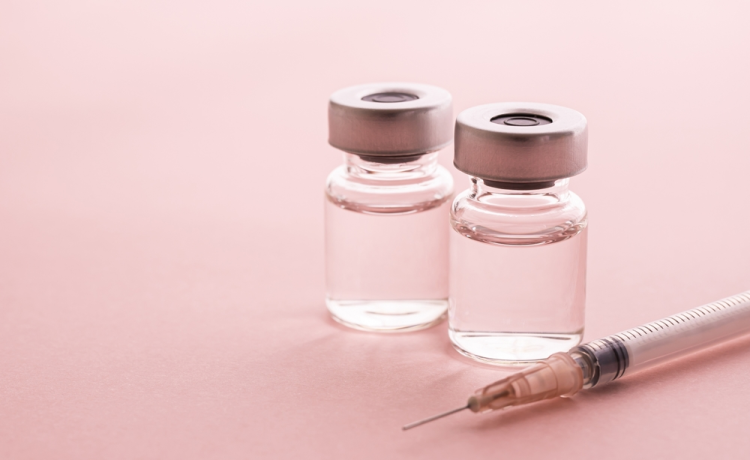Peptides that influence how cells function—known as “biopeptides“—are becoming an important area of research in proteomics. These small molecules have a range of biological effects, from regulating metabolism and digestion to providing benefits in cosmetics. As scientists continue to refine methods for isolating, studying, and producing biopeptides, their presence in food, medicine, and skincare is expected to grow significantly.
The Role of Peptides in the Human Body
Within each human cell, millions of proteins perform essential functions, including driving chemical reactions, shaping cell structure, and transporting materials. Alongside these large proteins exist peptides—smaller chains of amino acids that play vital roles despite their size.
Peptides are gaining attention for their potential to treat diseases, reduce inflammation, improve nutrition, kill harmful microbes, and even slow aging. Their small size allows them to penetrate biological barriers such as intestinal walls, skin layers, and cell membranes, making them attractive for pharmaceutical and food applications. Additionally, peptides are often simpler and more cost-effective to produce compared to larger proteins.
Biopeptide Basics
Both proteins and peptides are made up of amino acids. While definitions vary, a peptide typically contains fewer than 50 amino acids, whereas proteins tend to have hundreds. Due to their size, peptides usually remain as flexible strands rather than forming complex structures like proteins.
Biopeptides are produced in two primary ways:
- Inside the Body: Some peptides are naturally synthesized through the same cellular processes that produce proteins.
- From Food Digestion: Many biopeptides come from the breakdown of dietary proteins in the digestive system. Some of these peptides simply serve as building blocks for the body, while others have immediate bioactive effects, influencing cellular functions.
Fighting Microbes with Biopeptides
Biopeptides have significant potential in antimicrobial treatments. Molecular biologist Maxwell Hincke of the University of Ottawa has studied eggshell proteins and discovered that eggshells contain bioactive peptides with antimicrobial properties. His research suggests that these peptides could help combat bacterial infections that resist traditional antibiotics.
Similar antimicrobial peptides have been found in chicken blood, dairy products, beef, and whey. These peptides work in various ways, such as breaking bacterial membranes or interfering with microbial DNA or protein production. One particular peptide from goat milk cheese has shown promise in alleviating symptoms of Helicobacter pylori infections. Given that all living organisms must resist bacterial invasion, researchers believe many more antimicrobial biopeptides remain undiscovered.
The Role of Biopeptides in Nutrition and Metabolism
Since many biopeptides are generated during digestion, researchers have been investigating their effects on appetite, metabolism, and cardiovascular health. Scientists like Hiroshi Hara of Hokkaido University have examined soy protein derivatives for their ability to lower cholesterol and suppress hunger. His team identified a specific soybean peptide (β 51-63 peptide) that effectively reduces appetite in animal studies, offering potential applications for obesity and diabetes management.
Other biopeptides from beans, sweet potatoes, fish, and seafood have demonstrated the ability to regulate blood sugar, cholesterol, and blood pressure. Toshiro Matsui of Kyushu University has isolated dipeptides from soybeans, egg whites, and teas that help prevent hypertension and artery blockages. Some of these peptides work by relaxing blood vessels, while others regulate calcium levels within cells.
Biopeptides in Skincare and Cosmetics
Biopeptides have also made their way into the beauty industry. Many cosmetic products claim to be “peptide-infused,” promoting benefits such as wrinkle reduction, firm skin, and improved hydration. However, Perry Romanowski, a cosmetic chemist, warns that most marketing claims exaggerate the effectiveness of peptides in over-the-counter creams.
To truly impact skin metabolism, peptides must interact at a biological level—something that would require FDA regulation as a drug rather than a cosmetic. Nonetheless, some research supports the efficacy of specific peptides, such as GHK-copper, which has been shown to improve skin firmness in laboratory settings.
The Future of Biopeptide Research
Biopeptides hold great promise in healthcare, nutrition, and personal care. Their ability to interact with biological systems at a cellular level makes them valuable for developing new treatments for infections, metabolic disorders, and even skin aging. However, further research is needed to fully understand their mechanisms and optimize their applications.
As scientists continue uncovering new biopeptides, these tiny molecules may revolutionize medicine, food science, and skincare in ways we are just beginning to explore.







